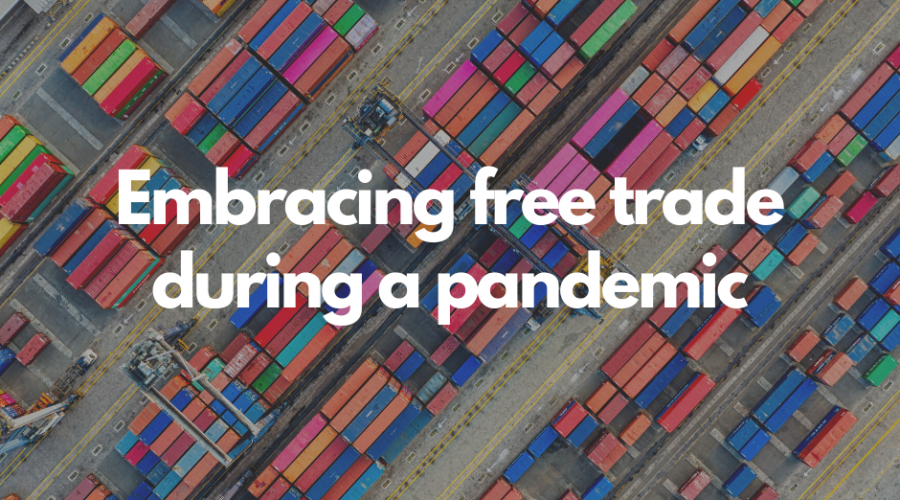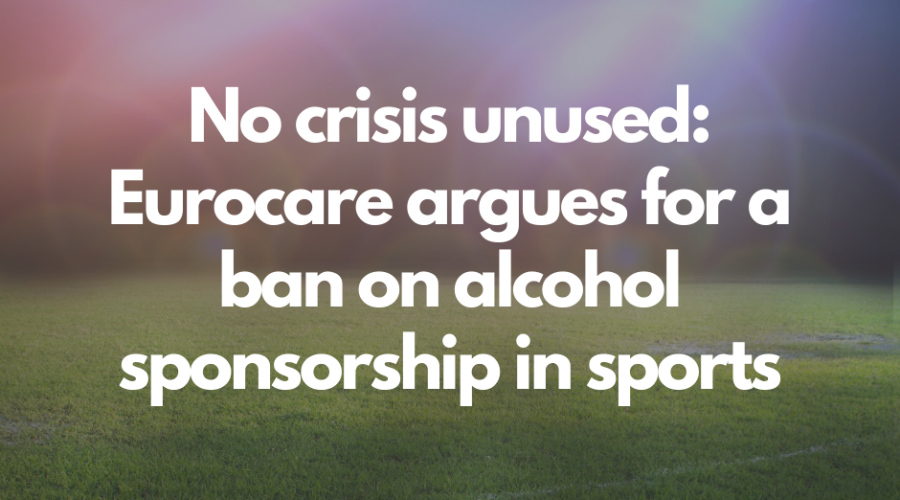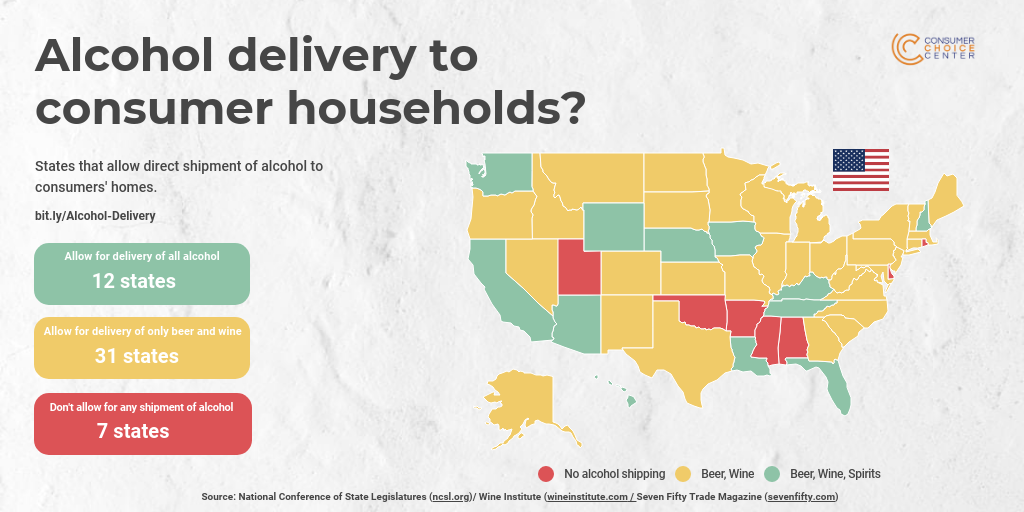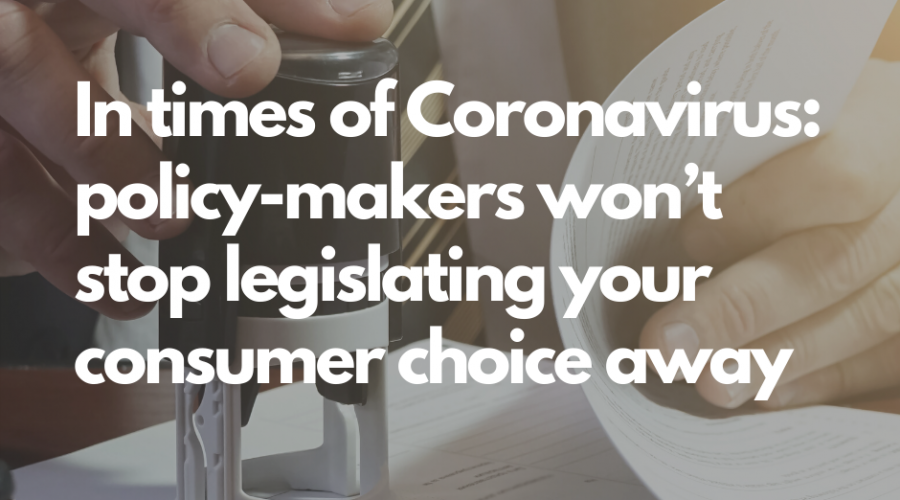Medical homegrowers are supplying the illicit market. Here’s why more policing isn’t the answer
The Consumer Choice Center’s David Clement explains how easing cannabis regulations could help personal growers enter the legal space
In less than two years, cannabis has gone from an illegal product to an essential service during a pandemic. But despite reports of increased sales as consumers stockpile for COVID-19 lockdowns, Canada’s cannabis market is struggling.
We kicked off this year with declining stock prices for licensed cultviators,
stagnant sales and rumours of a pending insolvency crisis for many mediumsized companies. The current coronavirus crisis could make this trend worse as global markets plummet.
There are a lot of reasons why Canada’s cannabis industry stumbled out of
the gate. Poor retail access, specifically Ontario; over-regulation and high tax rates. And establishing brand awareness in a market that prevents even the most modest forms of advertising and branding is challenging.
But there’s an additional factor at play: The program for growing medical
cannabis for personal use is undermining the legal market and fueling the
illicit market. Far more cannabis is being grown than medical cannabis consumers require — and some of that cannabis is being sold on the illicit
market. I’d like to propose a few potential solutions.
Breaking down the numbers
As a result of several Supreme Court rulings, medical cannabis consumers
have the constitutional right to grow their own medicine and can apply to do so through Health Canada.
The latest figures show that there are 28,869 Canadians who have their determined by Health Canada. Medical consumers are generally authorized
to consume between five and 60 grams of cannabis per day.
We don’t have national data, but general trends can be extrapolated from
provincial data. Via an access to information request, the average permit holder in Manitoba is authorized to consume 18 g/day, which entitles them to grow 88 indoor plants per year.
Quebec’s data is nearly double that of Manitoba: A 30 g/day average entitles
a medical consumer to grow 146 indoor cannabis plants each year. If we take provincial figures and forecast them on a national scale, permit
holders are growing a staggering amount of cannabis. Each indoor plant can produce between 250-600 grams per harvest, of which there are usually
three per year. One outdoor plant, with only one harvest, can yield as much
as 1.8 kg/year. A conservative estimate? The average Manitoba permit
holder could grow up to 66,000 grams (or 66 kg) of cannabis annually.
Rather than trying to arrest their way out of the problem, the government should focus on transitioning permit holder growers into the legal market
Applying that math to all Canadian permit holders would mean that in 2019, they grew an estimated 1.9 million kilograms of cannabis — approximately 158,000 kg — per month. Compare that to the legal recreational industry’s output: In August of 2019, the total amount of all legal recreational cannabis available for sale was 61,000 kg. Medical permit growers in Canada could be growing 2.5 times more cannabis than is legally available for sale in the recreational market. If Quebec’s figures are more representative of the national average, these growers would be growing 4.5 times more cannabis than is legally available.
Permit holders are growing more than then they need for personal
consumption. At 18 grams per day, a permit holder would need 6,570 grams
annually, while being permitted to produce more than 66,000 grams a year.
So where does most of the excess cannabis end up? The illicit market: York
Region Police’s recent bust showed that criminal networks were abusing the Health Canada permit process. The same thing happened
recently in Alberta, where a biker gang bust showed that illicit cannabis was grown by a Health Canada permit holder.
Either organized crime is taking advantage of Health Canada’s process, or
permit holders are enticed to sell their excess cannabis to criminals so it can be resold. This is part of the reason why the legal recreational market hasn’t truly materialized.
Increased policing isn’t the answer
But the government shouldn’t target legitimate permit holders. Doing so
would violate their constitutional rights, and would be exceptionally cruel
given how marginalized this group has historically been. Rather than trying
to arrest their way out of the problem, the government should focus on
transitioning permit holder growers into the legal market. A first step for this transition would be to restructure the regulations for growing cannabis.
Right now, licensed producers (LPs) have to comply with nearly pharmagrade regulations. Instead, they should more closely resemble food grade production standards. This would give medical permit-holders a realistic shot at earning a micro-cultivator licence and entering the legal market. It would also benefit existing producers by reducing compliance costs.
There are a few onerous barriers permit holders have to jump over that could be eased to help transition them into the legal space: The security clearance process is one, but we could also be easing facility regulations, reducing licensing fees, reducing the batch test minimum of 100 g/batch, or fast tracking the licensing and renovation amendment timelines. This would clear a path for these growers to enter the legal market and incentivize them away from the illicit market.
To say Canada’s legalization process thus far has been messy would be an
understatement. At almost every turn the government has over-regulated
the legal market, which is what keeps the illicit market thriving. Easing these heavy-handed regulations could bring more growers into the legal sphere and make for a more consumer-friendly market all around.
Originally published here.
The Consumer Choice Center is the consumer advocacy group supporting lifestyle freedom, innovation, privacy, science, and consumer choice. The main policy areas we focus on are digital, mobility, lifestyle & consumer goods, and health & science.
The CCC represents consumers in over 100 countries across the globe. We closely monitor regulatory trends in Ottawa, Washington, Brussels, Geneva and other hotspots of regulation and inform and activate consumers to fight for #ConsumerChoice. Learn more at consumerchoicecenter.org











